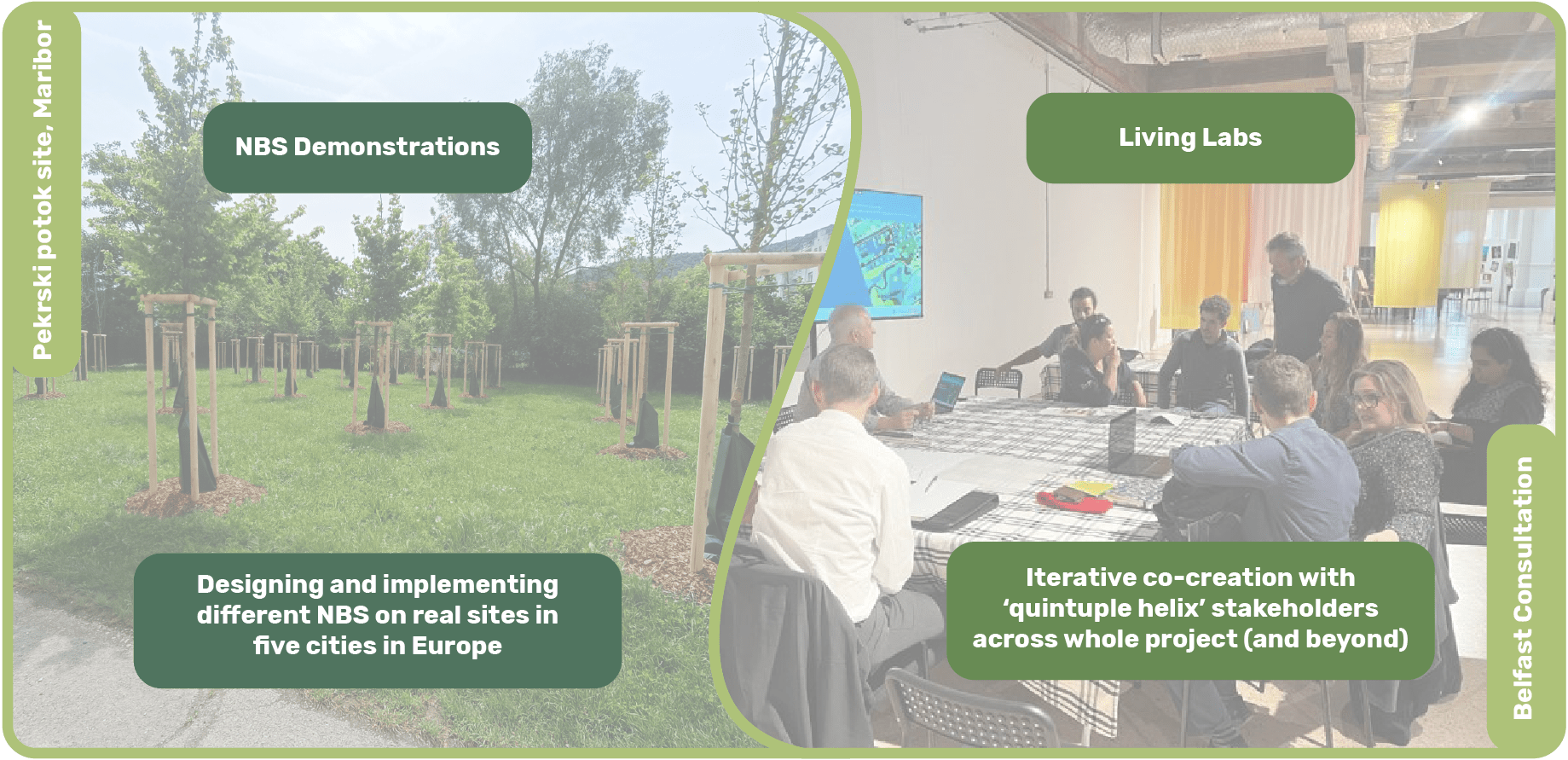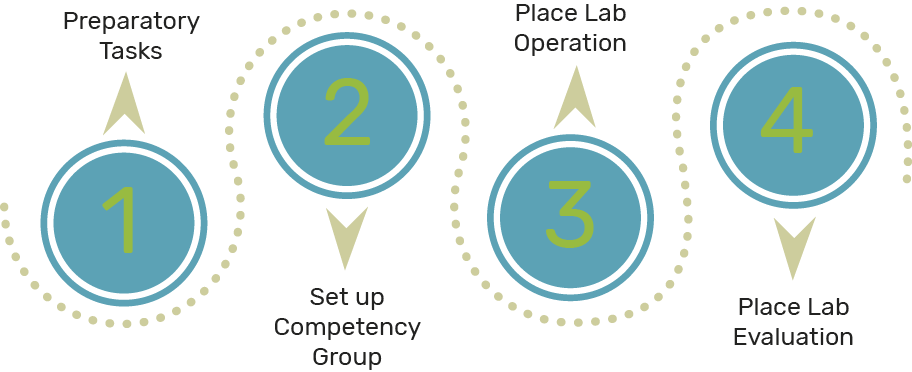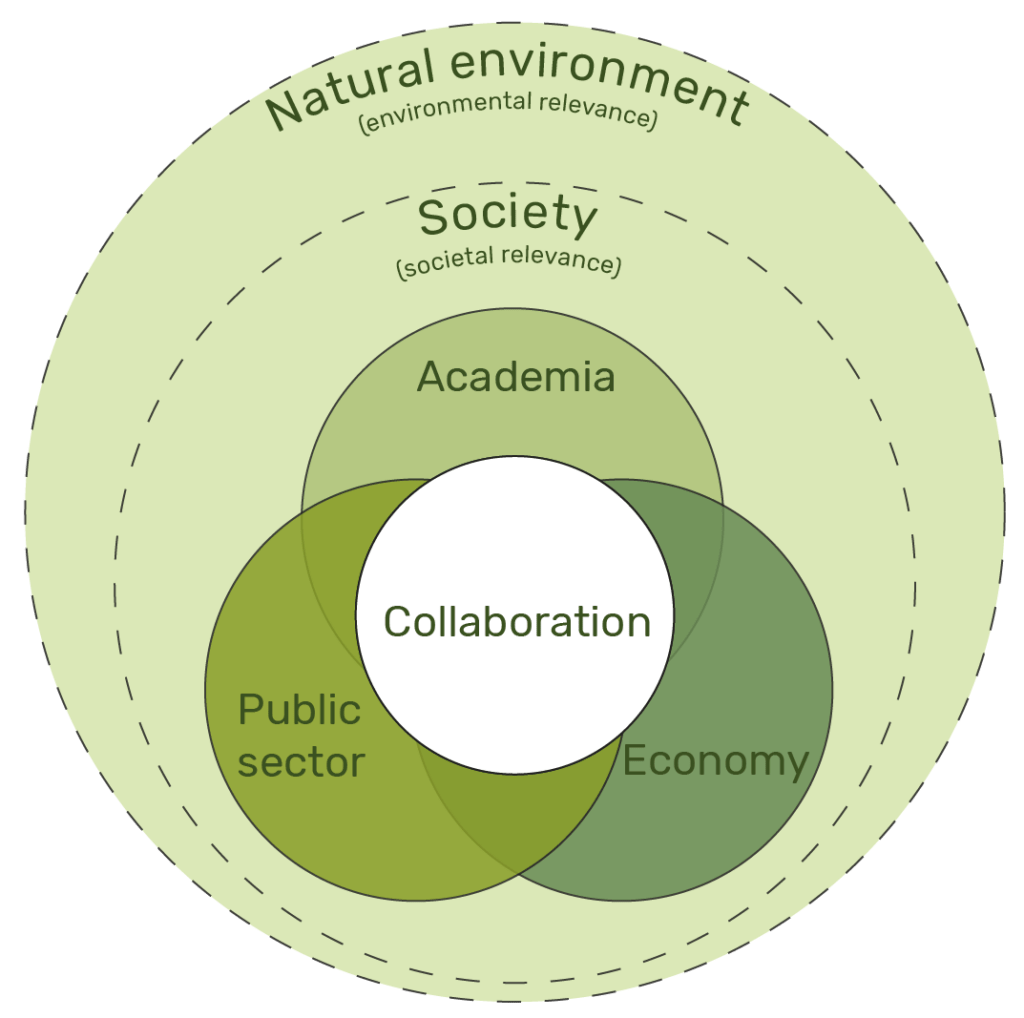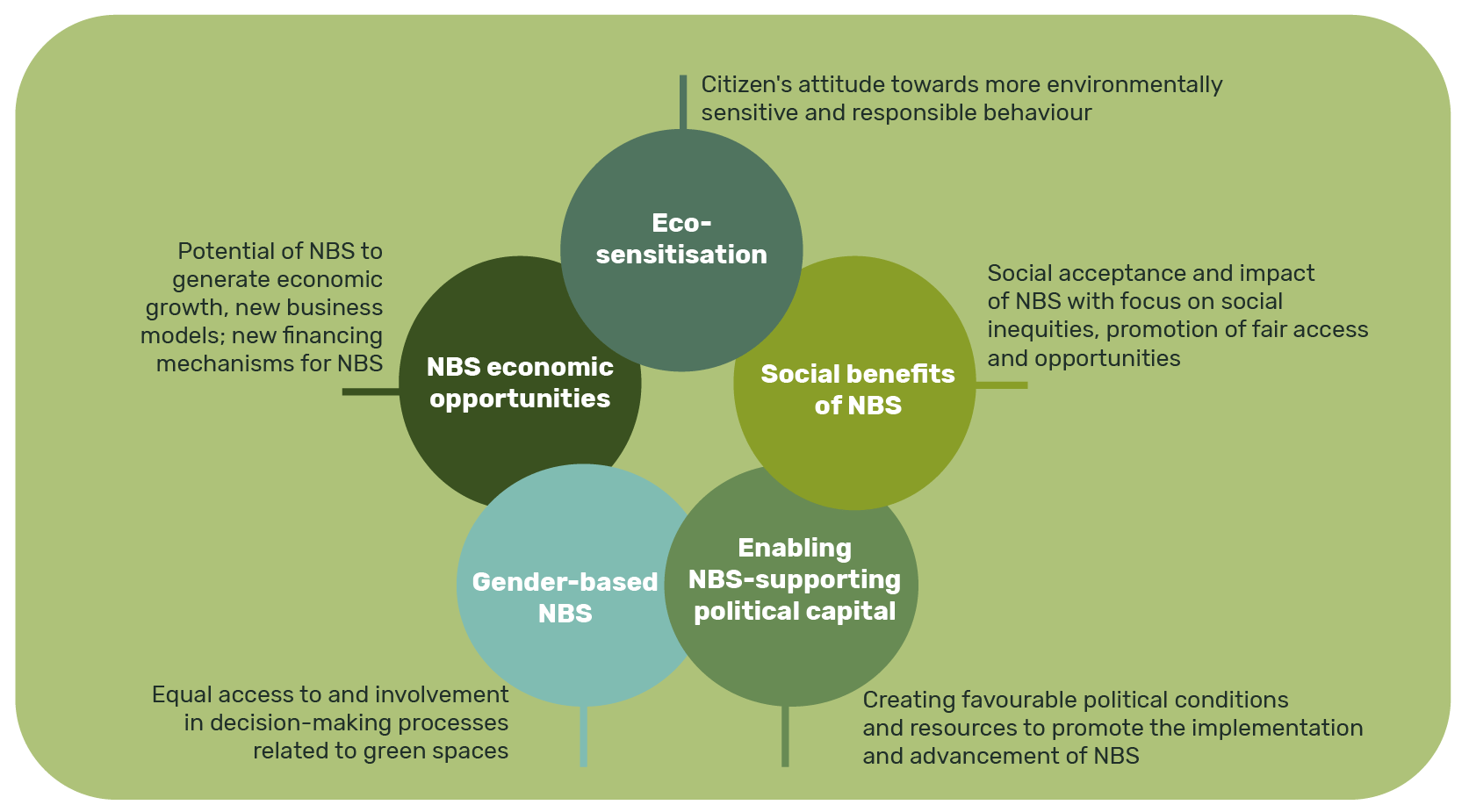The UPSURGE approach:
The project uses a place-based and a people-based approach:
- The people-based approach involves setting up Place Labs for an ongoing co-creation with various stakeholders. Limiting stakeholder engagement to open consultations is no longer sufficient for the effective implementation of Nature-Based Solutions. Partnerships and agreements with stakeholders are essential to help city planners overcome design barriers and make informed decisions about their greening plans. Therefore, UPSURGE has created Place Labs.
- The place-based approach focuses on the co-designing and implementation of NBS in five European cities: Budapest, Belfast, Breda, Maribor and Katowice. For each NBS demonstration, the city partners led the co-design process, supported by nearby UPSURGE research and innovation partners.

What are Place Labs?
Place Labs in the UPSURGE project create a working environment and framework for cooperation with stakeholders, including city residents, end-users, experts and partners, to validate NBS interventions according to selected project criteria in the five demonstration cities.
What is their role in UPSURGE?
Place Labs in the UPSURGE project aim to promote sustainable solutions, assess how people’s behaviours change as well as to explore and validate the environmental, social and spatial impacts of NBS. They focus on raising ecological awareness, improving social benefits and gender equity, exploring economic opportunities and building political support for these solutions.
How do Place Labs operate?
Place Labs follow four key steps: understanding the social context, setting up stakeholder groups, exploring and validating NBS impacts and evaluating the success of participatory methods.
STEP1 PREPARTORY TASKS: Understanding the social context of each Place Lab to find fit for purpose approaches in each city.


STEP 2 SETTING UP COMPETENCY GROUPS: Setting up a group of quintuple helix stakeholders involves stakeholders from academia, industry, government, civil society and the natural environment cooperating in the validation process.
Within each Place Lab a local Competence Group (CG), representing stakeholders from the Quintuple Helix, plays a crucial role in testing, validation, integrating new information and local knowledge into decision-making. The establishment of the CG, facilitated by stakeholder mapping and an open call, was initiated collaboratively by UPSURGE partners and cities across all demonstration sites.
STEP 3 PLACE LAB OPERATION: Explore and validate environmental, social and spatial dimensions of NBS.
Each CG elaborated their Local Place Lab Operation Plan, which catalogues specific participatory-led activities and methodologies for validating the chosen NBS against the five criteria specified in the UPSURGE project.
The five UPSURGE criteria can be briefly explained as follows:
- Eco-sensitisation: Eco-sensitisation refers to the process of raising awareness and, promoting understanding of ecological issues, and fostering environmentally responsible behaviour. The goal of UPSURGE is defining a baseline and monitor the change of citizen’s attitude towards more environmentally sensitive and responsible behaviour.
- Social benefits of NBS: When effectively communicated, acknowledged and embraced by citizens, NBS have the potential to deliver several social benefits, including improved health and well-being, enhanced quality of life as well as increased social interaction and community engagement. Through the UPSURGE project, we will assess the social acceptance and impact of the demonstrated NBS, with a particular focus on addressing social inequities and promoting fair access and opportunities. Our goal is to foster sustainable behaviours that support NBS and contribute to a community that is healthier and happier.
- Gender-based NBS: NBS can have implications on gender by promoting equal access to and involvement in decision-making processes related to green spaces, ensuring women’s safety in urban parks, and providing economic opportunities through green jobs, such as sustainable agriculture or eco-tourism. Throughout the project, we will examine how the demonstrated NBS impact gender issues, including addressing gender-based disadvantages, gender-based violence, unequal access to resources, limited representation and cultural practices that perpetuate discrimination based on gender.
- NBS economic opportunities: Implementing NBS extends beyond urban greening; they have the potential to generate economic opportunities, such as creating jobs and fostering economic growth. In UPSURGE, the goal is to explore these economic opportunities by collaborating with business partners to develop and test innovative business models and financing mechanisms for NBS.
- Enabling NBS-supporting political capital: Enabling NBS-supporting political capital refers to the process of creating favourable political conditions and resources to promote the implementation and advancement of NBS. In the UPSURGE project, our objective is to foster political support for NBS. We aim to surpass the mere recognition of NBS and their inclusion in strategic objectives by determining how to effectively incorporate NBS into policies with clear, measurable, and quantifiable targets. For example, if there is an urban air pollution mitigation plan with the target to reduce emissions over a specific period of time, NBS should be included as a measurable solution to achieve this target.
The Local Place Lab Operation Plans offer a structured framework that ensures clarity and organisation for everybody involved in order to accomplish the project’s goals successfully. In UPSURGE, a step-by-step guideline was provided to the demo cities to support the CGs in elaborating their Local Place Lab Operation Plan.

STEP 4 PLACE LAB EVALUATION: Assessing the cooperation and success of participatory methods and co-creation process.
This step includes evaluating the CGs and Place Labs, as well as incorporating their input on specific project tasks. Examples of these tasks include testing digital tools developed within the project, deploying the sensing system and finalizing the design of pilot investments.
Learn about Place Labs in the UPSURGE demo cities
More details at the each of the cities Demo Case pages:
